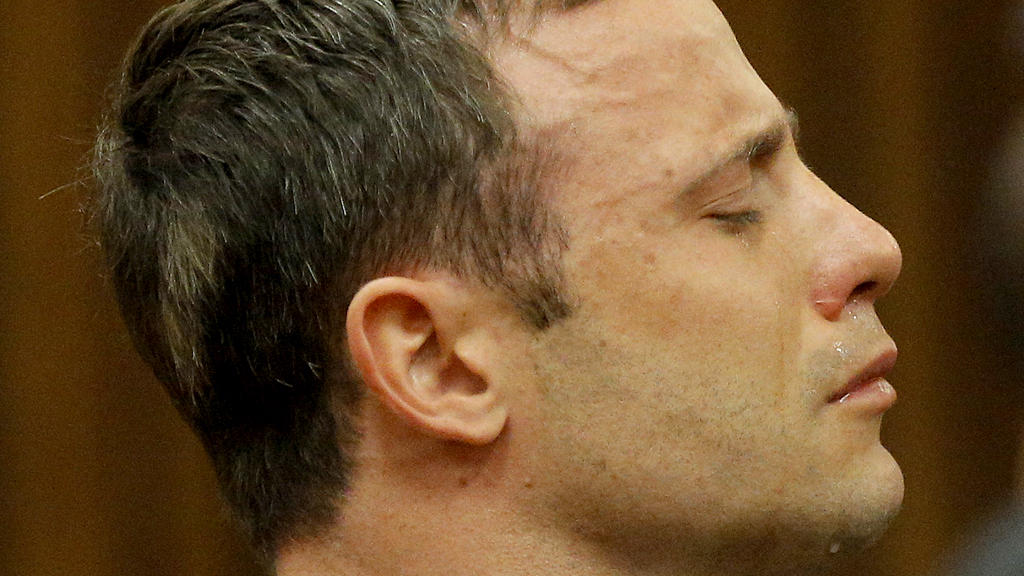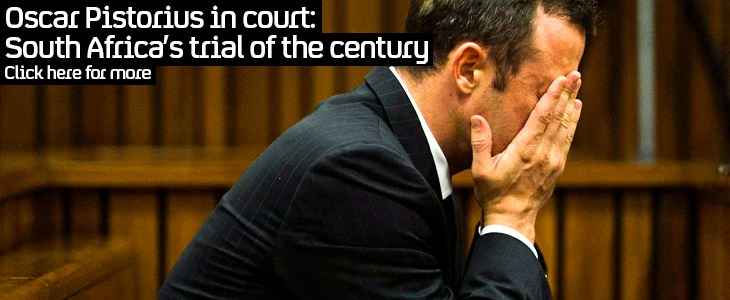Oscar Pistorius: just ‘a man without legs’?
Until he came to court, Oscar Pistorius had always rejected the term “disabled sportsman”. But his entire defence, says Kate Ansell, was based on how being disabled had affected him from an early age.

Immediately before shooting Reeva Steenkamp dead on Valentine’s day last year, Oscar Pistorious was most famous for being one of the most successful disabled athletes of all time, which was ironic when you consider that well before the 2012 Paralympics, he was telling journalists, “I’m not disabled – I just don’t have any legs.”
Being disabled and fast was always the basis of Oscar’s fame and fortune, so it did grate with some disabled people that he seemed keen to refute the former characteristic. Disability is not an uncontested term – definitions vary depending on who you talk to – but, as a rule, having no legs does count.
Fast forward three years, and Oscar’s in a courtroom charged with murder. Central to his defence is the notion that being disabled from an early age made him feel “vulnerable” and “anxious” when faced with a potential intruder.
It was quite an about-face for a man who had always attested that “You’re not disabled by the disabilities you have, you are able by the abilities you have”, and who wanted to run with the mainstream atheletes, not the disabled ones.
‘Abused woman’
At one point, his entire defence rested on the claim that being physically disabled affected his mental wellbeing. There is much crossover between physical impairment and mental health problems, but for Pistorius the implication that he did it because he was disabled was always going to be difficult for him to sustain, since he had been so keen to deny disability was a problem for him.
Extraordinarily, given the charges against him, his defence lawyer compared him to an “abused woman” who had snapped and pulled the trigger. If there was an abused woman at the centre of the trial, it wasn’t Oscar Pistorius.
His is a life of extraordinary, unexpected feats, and killing Reeva Steenkamp is yet another: he wasn’t wearing his prosthetic legs when he killed her, his mobility would’ve been extremely limited without them. Many people with similar impairments would have struggled to remain upright, let alone fire a shotgun. It seems being superhuman isn’t always such a good thing, after all.
‘Global inspiration’
Oscar was often held up as a role model for disabled people. As a disabled person who is never going to win a Paralympic medal, I was always a little sceptical. No-one expected him to become a killer, but it was never a secret that he liked guns and fast cars and had a temper.
In 2009, he narrowly escaped brain injury after crashing a speedboat; the same year he rowed with a woman at a party who later claimed he broke a door and injured her – he settled out of court with her earlier this year. Before competing in the 2012 Games, a British journalist who visited his home remarked upon the guns he kept close at hand.
It is hardly unusual for young wealthy international athletes to thrive on testosterone, live a bit too fast and play a bit too hard, but what was unusual about Pistorius was that he rarely got criticised for it. His impairment seemed to raise him above all that.
In 2012, just before he competed in London, Time magazine named him “the definition of global inspiration”. Even Usain Bolt – the fastest man on earth – has never been offered such an extraordinary accolade.
Time to change focus?
The trial itself led to some moments which were surreal and uncomfortable for disabled people to watch from afar: just how painful is it for him to walk on his stumps? Just how fast can he move? Can he run without his legs on?
At one point, one of the entirely non-disabled expert witnesses crouched down in the courtroom as if he was Oscar Pistorius without prosthetics on – which in almost any other context would’ve constituted a hate crime. It was very weird to watch.
One of the most frustrating things about the trial of Oscar Pistorius is that it could have, and should have, been all about Reeva Steenkamp, about domestic violence, men who kill their partners, and irresponsible use of firearms. Instead, it has all been about Oscar Pistorius, disability, and yet another of his extraordinary deeds. Perhaps now the trial’s over, it’s time to change the focus.
Kate Ansell is a disabled journalist
